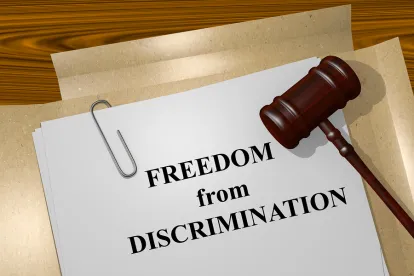On November 27, 2017, at the 34th International Conference on the Foreign Corrupt Practices Act (FCPA), Deputy Attorney General Rod Rosenstein announced a revised FCPA Corporate Enforcement Policy, which purports to lend certainty for companies grappling with the question of whether to voluntarily disclose violations. This new policy comes on the heels of the year and-a-half long FCPA Pilot Program. Prior to introducing the new Corporate Enforcement Policy, Rosenstein touted the success realized through the Pilot Program—an increase from 18 to 30 voluntary disclosures over an 18-month period. The new policy seeks to incentivize companies to voluntarily disclose FCPA violations and cooperate with the Department of Justice (DOJ) in remedying the violation.
Most notably, the policy calls for different treatment of companies that make voluntary disclosures to DOJ and those that do not make voluntary disclosures, but otherwise cooperate with DOJ. For a company to avail itself of the most favorable treatment it must voluntarily self-disclose potential FCPA violations, fully cooperate with any responsive DOJ investigation, and timely and appropriately remediate any issues of foreign corruption. Meeting these requirements will lead to a presumption towards declination by DOJ of otherwise appropriate criminal charges “absent aggravating circumstances.” The qualifying limitation for “aggravating circumstances” is not clearly delineated, but the DOJ guidance does provide examples of potentially disqualifying circumstances, including “involvement by executive management of the company in the misconduct; a significant profit to the company from the misconduct; pervasiveness of the misconduct within the company; and criminal recidivism.”
In instances where aggravating factors are present and thus criminal enforcement action is warranted, the new policy provides a recommendation for reduced penalties. Namely, DOJ “will recommend a 50% reduction off the low end of the U.S. Sentencing Guidelines, except in the case of a criminal recidivist.” Guidance as to how DOJ defines criminal recidivism is not present in the policy. DOJ will generally not require a monitor if a company has implemented an appropriate compliance program.
DOJ will offer a scaled incentive for companies that do not voluntarily disclose potential FCPA violations, but subsequently fully cooperate and remediate underlying issues. Specifically, DOJ will recommend “up to a 25% reduction off of the low end of the U.S.S.G. fine range.”
In addition to satisfying the above standards, participation in the Corporate Enforcement Policy requires disgorgement, forfeiture, or restitution of profits traceable to FCPA violations. This amount often comprises a hefty portion of the overall cost of an FCPA violation, and DOJ exercises a wide degree of discretion in determining this amount. For this reason, the disgorgement, forfeiture or restitution component is an important consideration for those corporations evaluating the benefits and costs of pursuing a “declination.”
The new Corporate Enforcement Policy lends a degree of clarity to DOJ’s FCPA policy, which will enable companies to make more informed business decisions. Still, the policy is not binding, leaving ultimate enforcement decisions to the prosecutorial discretion of DOJ components and U.S. Attorneys’ Offices. The policy further leaves unanswered questions about how DOJ will apply the policy. Among these concerns are uncertain standards to determine whether a company has sufficiently “voluntarily self-disclosed misconduct,” “fully cooperated” with the government’s investigation, and “timely and appropriately remediated.” Beyond this uncertainty as to whether a company’s actions would be deemed sufficient to trigger favorable treatment under the policy, there is further uncertainty regarding the methodology DOJ, in its sole discretion, will use to calculate profits subject to disgorgement. Finally, because the policy calls for the public disclosure of not only FCPA convictions resulting in reduced sentences but also declinations of cases that would otherwise have been prosecuted but for a company’s compliance with the policy, companies must also consider the publicity of a disclosure in determining its best course of action.




 />i
/>i
